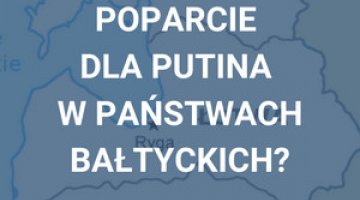The Lithuanian government is resuming the topic of claims linked to Soviet occupation ahead of the election
On 23 May, the conservative Andrius Kubilius’s government appointed a commission which already in June will prepare anew Lithuania’s negotiating strategy with regard to the government of the Russian Federation concerning compensation for the losses sustained by Lithuania and its residents as a consequence of the Soviet occupation in 1940–1991 and the operations of the Russian army between 1991 and 1993. Such a commission was formed for the first time in 1995; it estimated Lithuania’s losses at approximately 8.6 billion euros. Kubilius has emphasised that the government intends neither to change this sum nor to demand payment from Russia now; its sole intention is to prepare the action plan. The question as to whether the Russian Federation should assume responsibility for the occupation of the Baltic states is one of the key elements of the political dispute which prevents Moscow from normalising relations with Vilnius, Riga and Tallinn.
-
Kubilius is arguing that the topic of the claims has been resumed because the new government in Russia has been sworn in, however, his decision is closely linked to the parliamentary election in Lithuania scheduled for 14 October 2012. The nationalist slogans used in the previous campaign consolidated Lithuania’s right-wing electorate, which allowed the united political right to take power in 2008. At present, the party led by Kubilius – the Homeland Union/Lithuanian Christian Democrats – may count on support from only 7.5% of voters, and part of the Nationalists, dissatisfied with Kubilius’s rule, even left the alliance with the Conservatives. The prime minister’s party is again making a gesture towards Lithuanians with right-wing and nationalist views – who support several parties – by showing them that national interests are still important to the Conservatives.
-
The Conservatives are thus also preparing their campaign against the populist political left, which is becoming united. The leaders in the pre-election polls are the Social Democrats – the Labour Party led by Viktor Uspaskich and the Order and Justice party led by Rolandas Paksas. These groupings have forged an alliance covering the election campaign and building a coalition after the election. According to opinion polls, the combined level of support for these two parties is at approximately 37%. These groupings want co-operation with Russia, and are sometimes seen as pro-Russian. Their opposition to the commission’s activity may be used by the Conservatives to brand them as non-patriotic parties, which harm the interests of Lithuanians, most of whom expect that Russia should assume at least moral responsibility for the occupation of the Baltic states.
- Political relations between Vilnius and Moscow became completely frozen during the four years of Kubilius’s rule despite attempts to re-establish them made by the government and President Dalia Grybauskaite. They even became hostile, when the Kubilius cabinet dealt a blow to the direct economic interests of Russian companies in Lithuania through the implementation of a policy aimed at making Lithuania independent from Russia in the area of energy (the LNG terminal, the nuclear power plant and the implementation of the EU Third Energy Package). By resuming the debate over compensation, which will be taking place alongside the negotiations with Gazprom concerning the manner of implementation of the EU Third Energy Package (which undermines Gazprom ownership interests) the present Lithuanian government is posing a challenge for its successor in relations with Russia.





